MIDWAY (2019)
The story of the Battle of Midway, told by the leaders and the sailors who fought it.
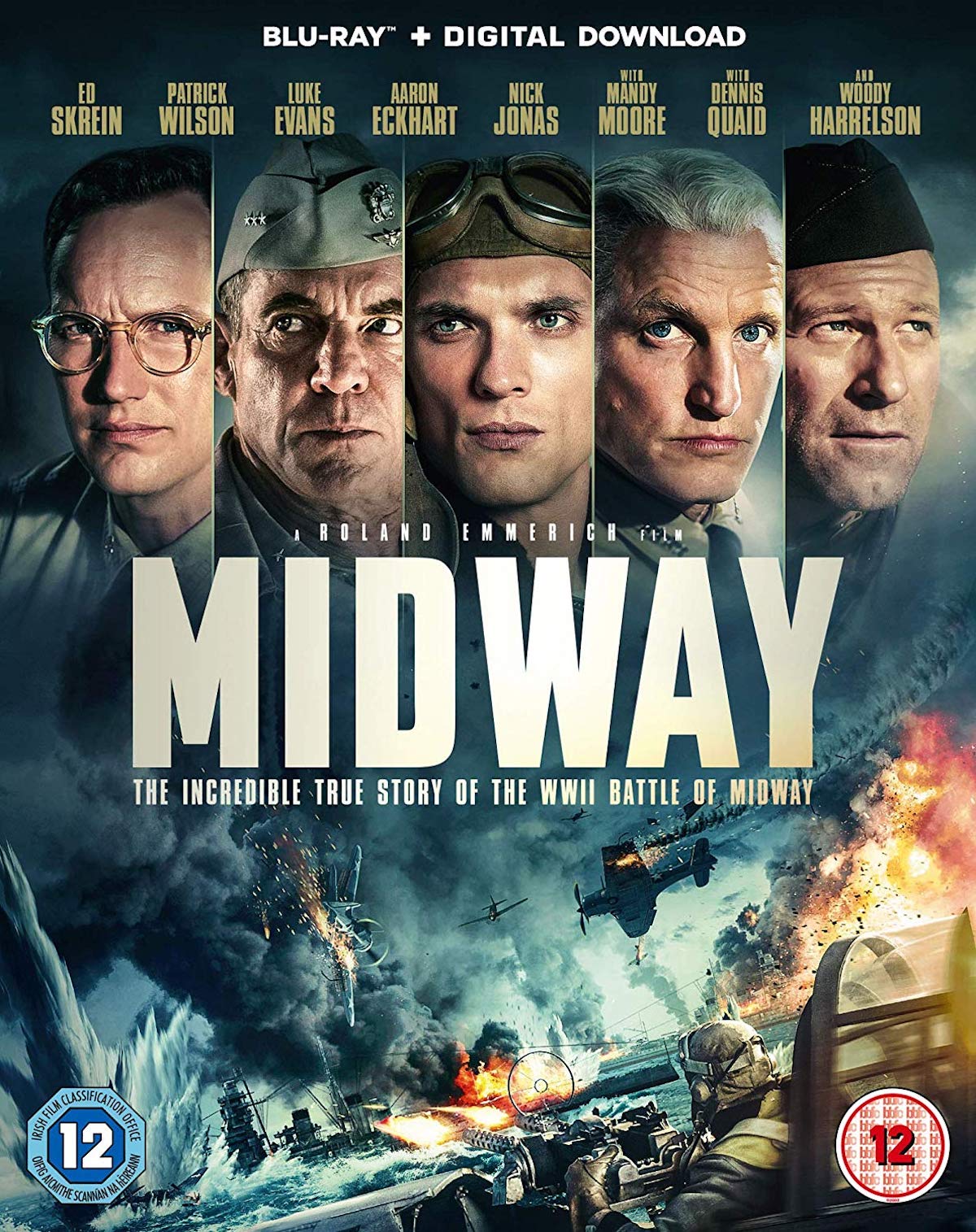
The story of the Battle of Midway, told by the leaders and the sailors who fought it.


The late, great film critic Roger Ebert memorably described Michael Bay’s Pearl Harbor (2001) as “a two-hour movie squeezed into three hours, about how on Dec. 7, 1941, the Japanese staged a surprise attack on an American love triangle.” Roland Emmerich’s Midway, which chronicles both the Pearl Harbor attack and the US naval campaign that culminated in the Battle of Midway, six months later, doesn’t quite reach Pearl Harbor’s runtime (clocking in at “only” 138-minutes), but it feels almost as interminable.
The problem here is the opposite of that afflicting Bay’s film, however. Where Pearl Harbor dawdled over its romantic entanglements and relegated the war to second place, Midway is fixated on the military proceedings and never lets anything like a well-developed character get in the way. The action skips back and forth from the US fleet to headquarters back in the States, with occasional detours to the Japanese side (portrayed with even-handedness) but little intrusion from the civilian world.
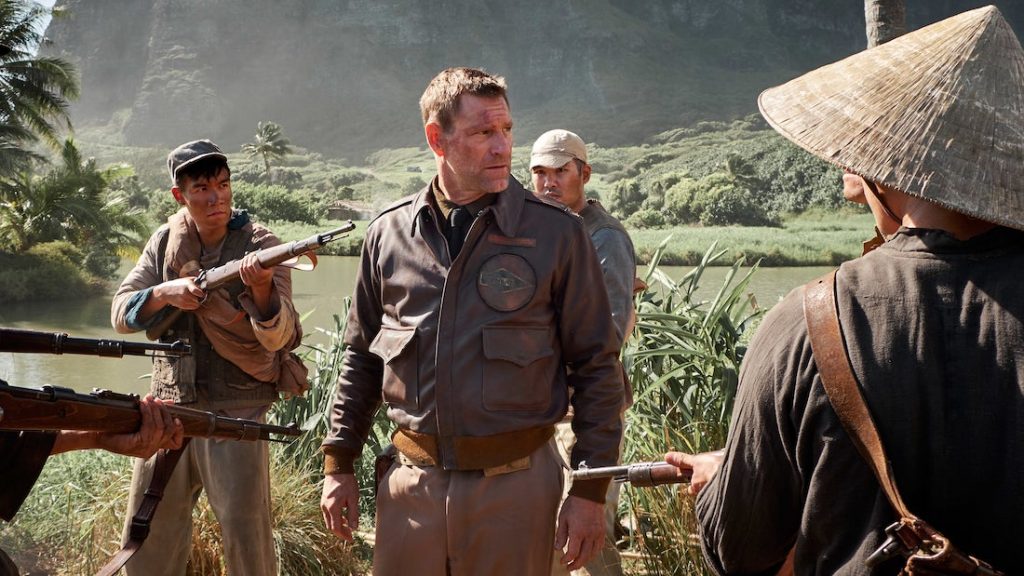
In its favour, Midway (which apart from its historical setting has little in common with the 1976 movie of the same name) does a reasonable job of explaining exactly what was at stake as the Japanese and American navies clashed in the Pacific, and exactly how their battles were conducted. Screenwriter Wes Tooke elaborates in one of the Blu-ray’s featurettes that even quite minor events in the film are based on factual records.
So a viewer who’s more interested in history and military strategy than drama might find it satisfying enough, although the chances are that anyone really fascinated by the period will know everything that Midway has to relate anyway (and there’s at least one glaringly misleading intertitle, which implies that Japan didn’t invade China until after 1937).
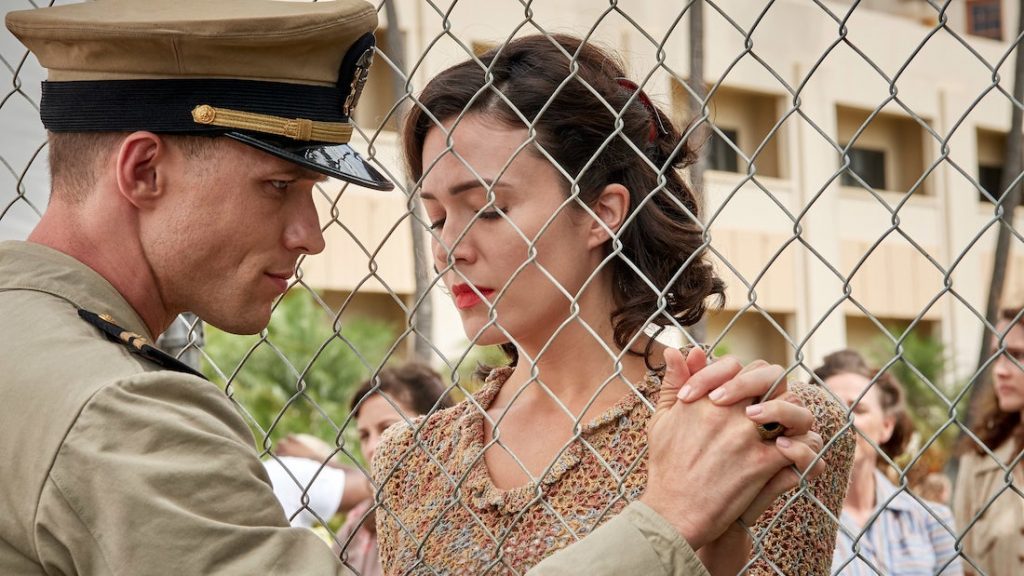
The locations are often interesting and the details of combat are vivid and clear, too, helped by a sparklingly bright, clean transfer to Blu-ray. If you want to know how artillery was fired or a plane was piloted, Midway seems to deliver—although there have been quibbles in online forums and from military experts.
But even the battle scenes are terribly cold and (like the entire film) hugely reliant on CGI, lacking any sense of messiness, urgency, or confusion, let alone actual death or fear. The VFX sequences are like animated illustrations of engineering than tense episodes in the lives of believable people. Indeed, the Pearl Harbor attack strongly resembles video game graphics and is about as thrilling as a game you’re not playing.
This care for the superficial detail, at the expense of depth and engagement, extends to the human story too. Tooke’s debut script is largely to blame. Not only is it strewn with banal lines like “nobody would doubt your courage”, or clunky exposition like the below-decks Japanese sailor helpfully saying to himself “this place is a powder keg”. We can live with a little of that. But more problematically, there are too many characters, threads, and pointless little scenes.
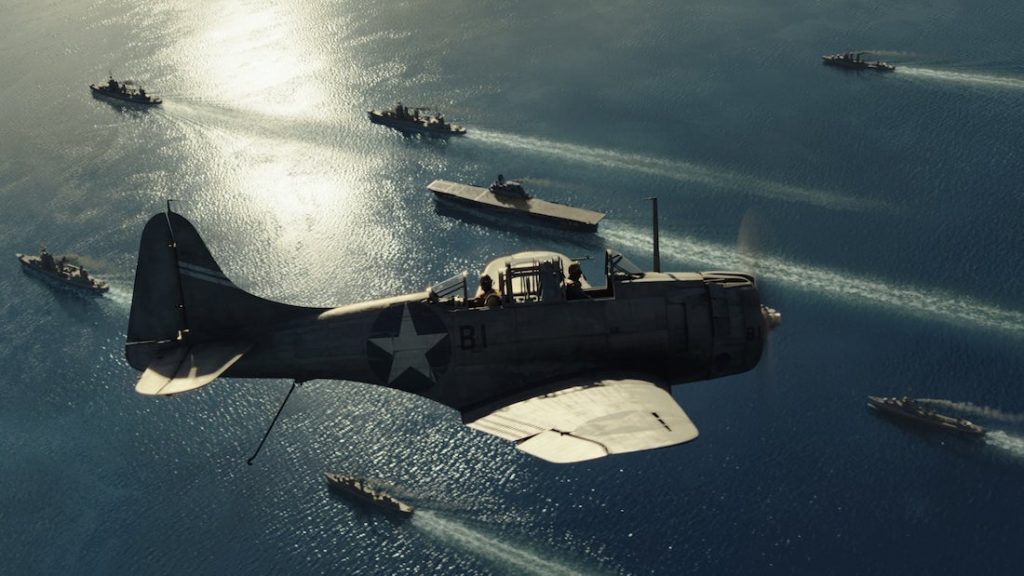
A senior officer comes down with shingles. At best this tells us that command in wartime is stressful, which we probably guessed, at worst it tells us nothing since we don’t know him well enough to care about his well-being. A landing plane topples off the end of its aircraft carrier and an airman from it is taken to the sickbay. The moment’s only a few seconds long but since it’s neither anticipated nor followed up, what’s the point? It’s difficult to escape the impression that Tooke is trying to cram in as much historically-based incident as possible, regardless of how well it flows or resonates for audiences.
Another passage where the codebreaker Commander Joseph Rochefort (Man in the High Castle‘s Brennan Brown, giving the most striking performance) tries to convince colleagues that the Japanese attack target is Midway and not elsewhere should be high-tension, but it’s flabby. There’s a moderately exciting submarine sequence…and then the movie just forgets about the sub and turns instead to half-develop other plot strands before abandoning them in turn.
Despite being weighed down by all this, though, the cast mostly manages to turn in creditable performances. Square jaws abound, of course, and considerable attention seems to have gone into ensuring that the actors resemble the historical figures they’re playing (most of the main roles were real people). This is commendable, but also futile since nobody in the audience will have any mental images of the actual people.
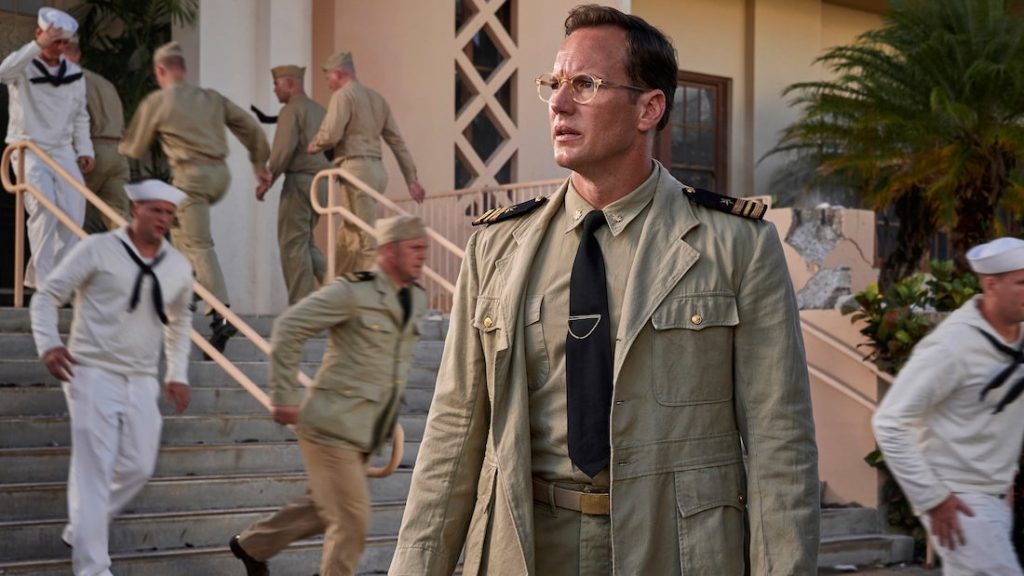
Still, many of them not only look the part but are as convincing as they can be given the limitations of the script. Most notable are Woody Harrelson as Commander Chester Nimitz (one of the few characters to still be a familiar name today), Kenny Leu as a Chinese schoolteacher, Jake Manley as a young ensign who loses his nerve, Patrick Wilson as Lt. Cmdr. Edwin Layton, and Geoffrey Blake in a cameo as irascible film director John Ford.
Alexander Ludwig, meanwhile, pops up sporting a 1940s moustache that is not quite as splendid as John Travolta’s in The Thin Red Line (1998), but gratifyingly surprising nonetheless on an actor we’re more used to seeing as Bjorn Ironside in TV’s Vikings. Letting them down, sadly, is a consistently wooden Ed Skrein in the lead as Lt. Richard Best. He has one “interesting” eccentricity, chewing gum while he pilots his plane, and it’s terribly belaboured.
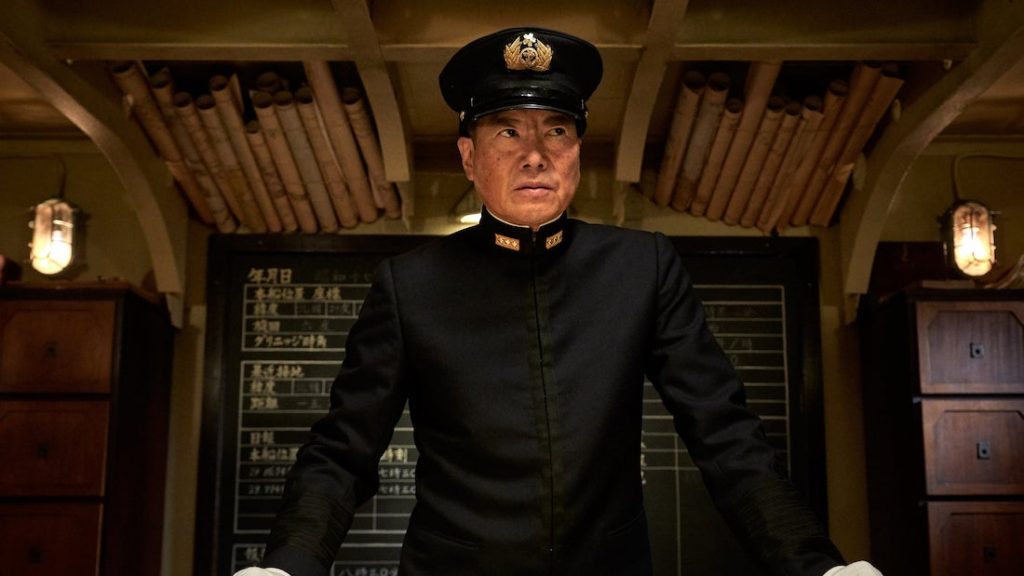
The cinematography by Robby Baumgartner is technically accomplished, with an unexpectedly poetic touch at the very beginning (waving bamboo stalks in pre-war Japan, almost abstract) which then disappears for the duration. Of course, traditional camera work takes a back seat to the VFX. Thomas Wander’s score, meanwhile, is an annoying compilation of hackneyed surges and oh-so-predictable hints of The Last Post.
Perhaps what’s wrong with the music exemplifies what’s wrong with Midway as a whole. It’s full of noise and spectacle yet it’s entirely lifeless. It is, in fact, very much what one might expect if artificial intelligence was fed a bunch of Hollywood action flicks from about the 1980s onwards, then given the story of the Battle of Midway and told to make a film about it. Everything’s there, in its place… and yet there’s nothing there, really. It’s all empty gesture, and the best efforts of a half-decent cast are defeated by the vacuousness of the script, as well as the writer and director’s apparent lack of interest in their characters.
Of course, it’s not the worst movie of 2019, thanks to Tom Hooper’s jaw-droppingly misconceived Cats. But it’s a close-run thing.

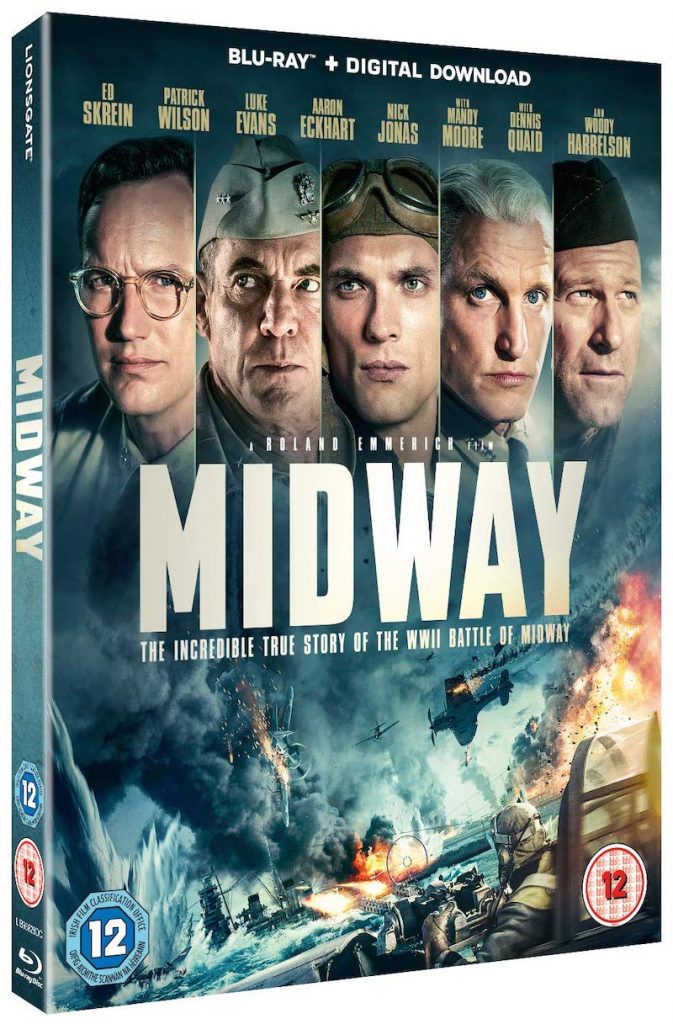

director: Roland Emmerich.
writer: Wes Tooke.
starring: Ed Skrein, Patrick Wilson, Luke Evans, Aaron Eckhart, Nick Jonas, Etsushi Toyokawa, Tadanobu Asano, Luke Kleintank, Jun Kunimura, Darren Criss, Keean Johnson, Mandy Moore, Dennis Quaid & Woody Harrelson.
